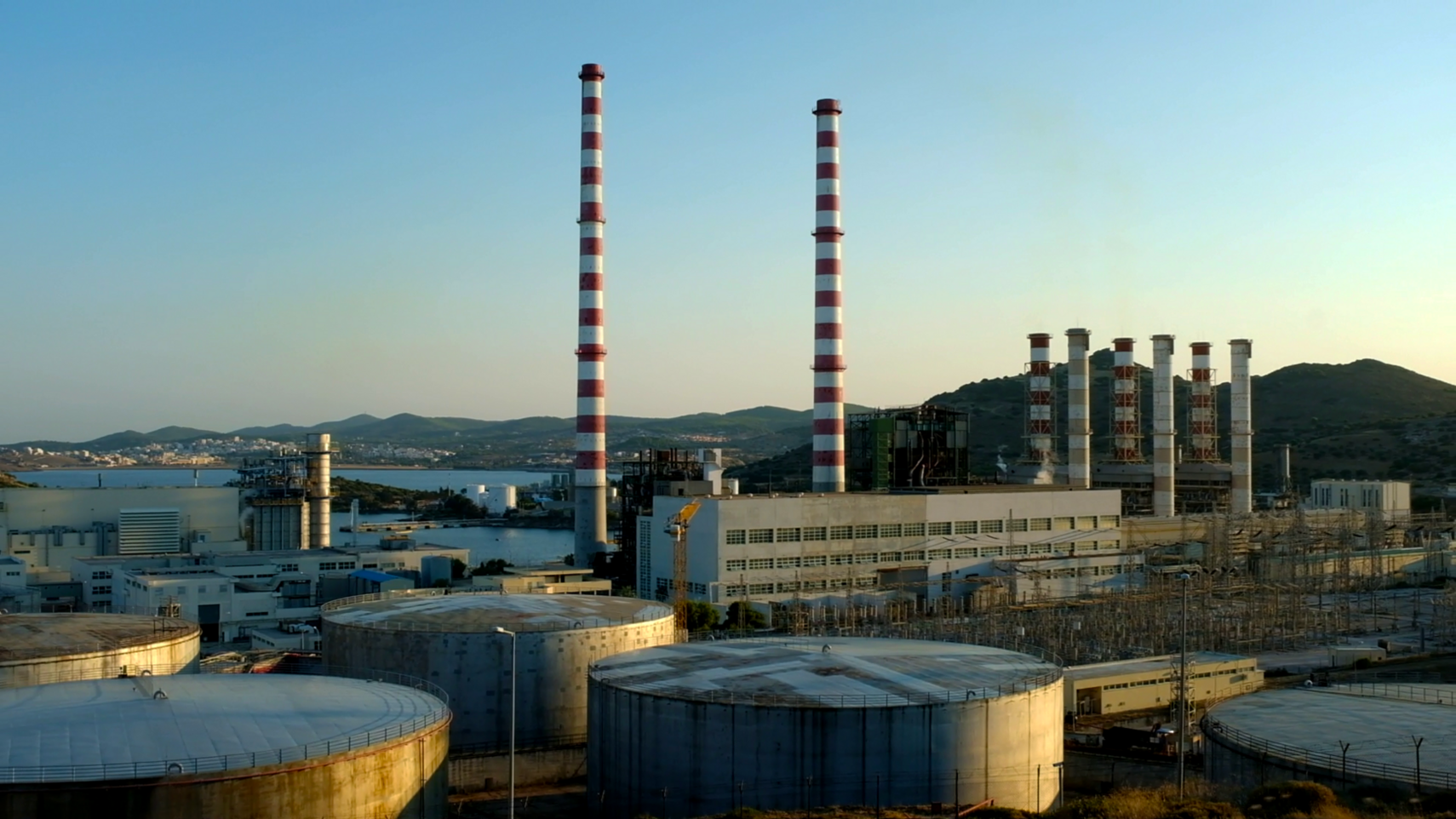This story was produced in collaboration with Investigate Europe and it’s part of our joint Dirty Subsidies project.
Scraping και data analysis: Sotiris Sideris
Editing: Georgia Nakou, Sindhuri Nandhakumar
Most Greek islands have remained cut off from the country’s main power grid for decades, relying on oil generators which cost billions of euros to run. They pollute the environment and also damage the health of local communities. An investigation by Investigate Europe and Reporters United identifies the few winners — including the two biggest business families in Greece — and many losers of this arrangement.
It is a little after 3 am on June 2, 2020, and the tanker Ice Hawk is anchored off the coast of the Greek island of Rhodes. It will remain there for the next eight hours, pumping 6,000 tonnes of heavy fuel oil into the power station at Soroni. Rhodes is a popular holiday destination, and Nikos Passalis runs a hotel near the power station. “Visitors arrive at the hotel and the first thing they see are the chimneys,” he shares. “At the beach they see the chimneys and the black smoke, they hear the generator, they smell the fuel. Many of them ask us how we can burn black oil in a holiday paradise.”
A few miles inland from Soroni power station is Butterfly Valley, one of Rhodes’ main natural attractions and a Natura 2000 protected zone. The island’s second power station in south Rhodes is located in the midst of another nature reserve, meaning the tankers drop anchor in sight of a unique and fragile ecosystem which is — at least nominally — protected by law.
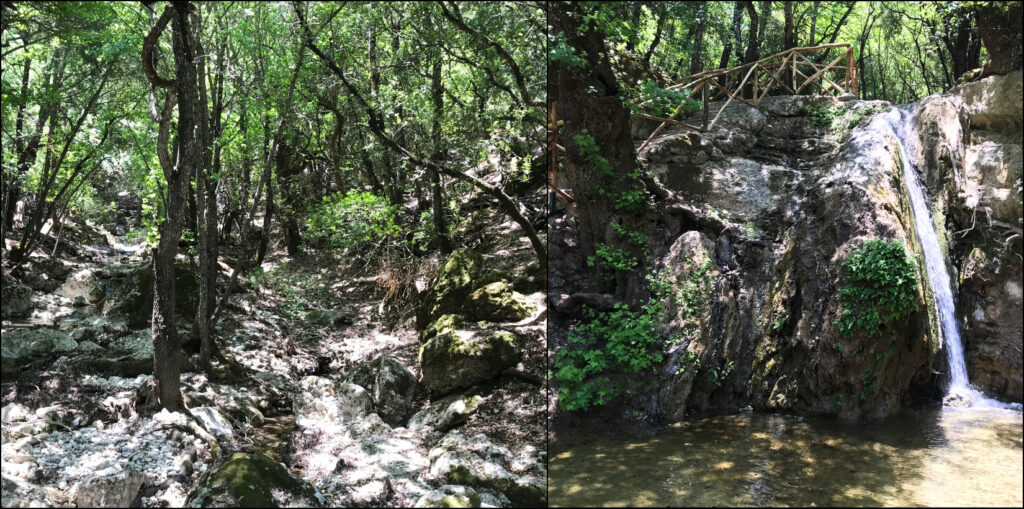
“Wasted billions”
Rhodes is not unique in this arrangement. Today, 29 autonomous power grids supply 47 islands with electricity generated by burning diesel and heavy fuel oil — one of the most polluting petroleum fuels with a high sulphur content. The islands were electrified in the post-World War II period in the rush to modernise the country. Greece’s geography, with hundreds of small islands far from the mainland, made independent power generation the only practical option at the time.
Between the 1960s and 1980s, some island groups off Athens and western Greece were connected to the mainland’s grid. However, the Cyclades, the Dodecanese and Crete have remained stranded for more than four decades, despite evidence stating that interconnection was both technically feasible and cost-effective.
The Public Power Corporation (PPC, commonly referred to by its Greek acronym DEI), Greece’s state-owned former monopoly power company, concluded that connecting Crete to the mainland grid was financially viable as early as 1981; This information was stated in its annual report from that year. Today, politicians and experts alike estimate that the planned Attica-Crete interconnector will cost €1 billion to build. But the Greek Environment and Energy Ministry estimated that it will save €400 million annually, suggesting that the project would pay for itself in two and a half years.
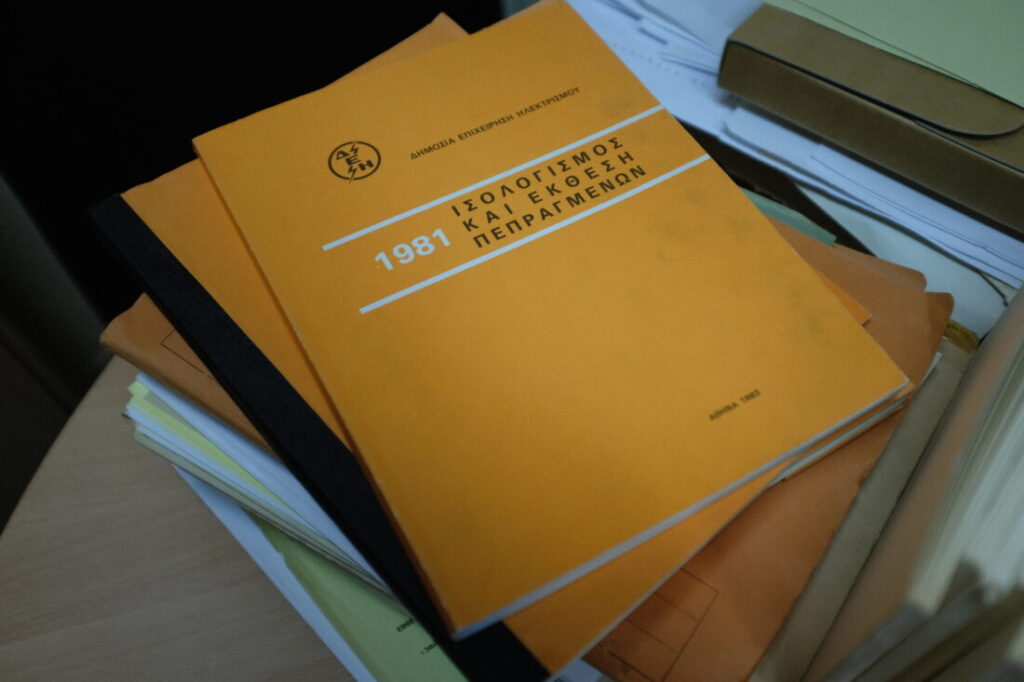
Greece is finally on course to cut the islands’ dependence on fuel oil and diesel for electricity, but this is not due to happen before the end of the decade. According to the National Energy and Climate Change Plan, Crete will be connected to the national power grid by 2023, the Cycladic islands by 2025, the Dodecanese by 2028 and the islands of the north Aegean by 2029.
If it has been feasible for decades, why did it take so long?
A former senior government official who spoke to Investigate Europe and Reporters United has no doubt as to why. “There is a lot of money involved and there are vested interests in the domestic oil industry,” he says, adding, “Governments turned a blind eye to the cost for consumers and wasted billions. This benefitted the oil industry, the shipping companies transporting the fuel, people in DEI-PPC who had gained influence in the power stations and local communities. Everyone was satisfied — apart from citizens, who were paying billions”.
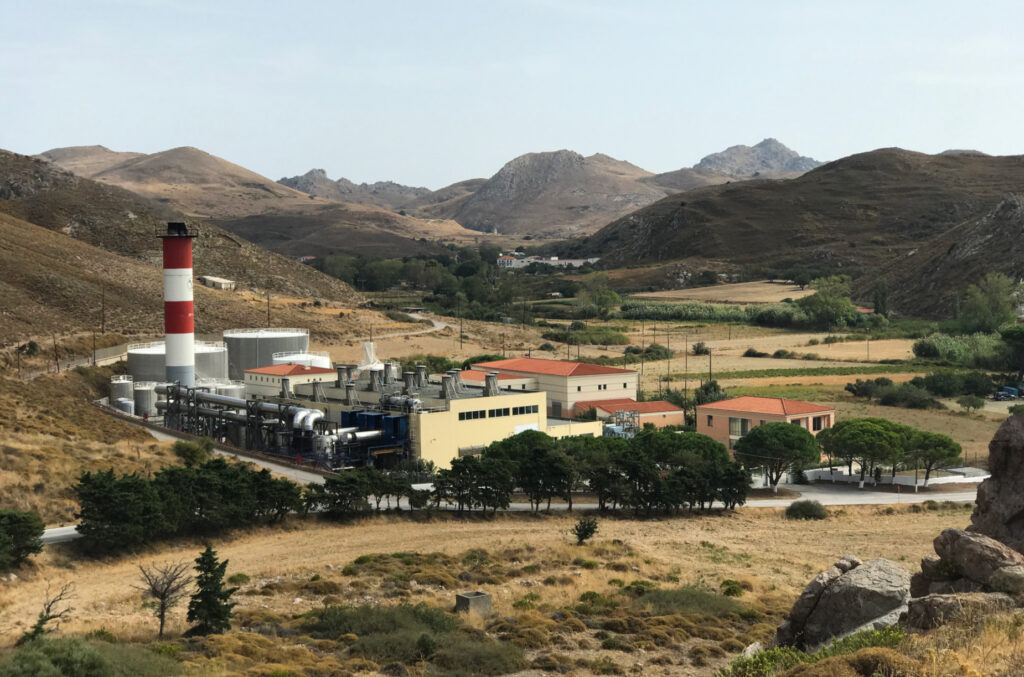
The winners – fuel suppliers and shipping companies
Every year, DEI-PPC invites bids for the supply and transport of heavy fuel oil (HFO) and diesel. In 2017, records show it spent €310 million on fuel oil and €380 million on diesel. In 2018, the cost was €330 and €240 million respectively, and the projected cost for 2019 was €318 million euros for HFO and 295.4 million for diesel.
Reporters United analysed the available data on DEI-PPC’s fuel contract auctions. The figures go back to 2014 and were scraped from the DEI-PPC’s online database. (We have published here the scraped database in the form of a spreadsheet for journalists and researchers to work on it.)
Two domestic oil companies, HELPE (Hellenic Petroleum) and Motor Oil emerge as DEI-PPC’s biggest suppliers of fuel for the islands, alongside a handful of foreign companies (including Petroineos, Vitol and Shell Trading Rotterdam).
We were not able to obtain consistent data for years prior to 2014 despite repeatedly approaching DEI-PPC and its domestic suppliers. However, DEI-PPC’s Board reports show that the diesel contracts for the years 2010-2013 were shared between HELPE and Motor Oil.
The HELPE Group, controlled by the Latsis family, has received €1.4 billion since 2014 for supplying fuel to the islands. Besides its controlling stake in the HELPE group, which is the biggest oil company in Greece, the Geneva-based Latsis family has business interests in banking, real estate and shopping malls. It is also the main stakeholder and developer of the €8 billion Hellinikon project. According to the FT, this is “Europe’s largest urban regeneration project” and “Greece’s most significant private investment in a decade”.
Motor Oil, a Vardinogiannis Group company, was awarded contracts worth €400 million for the islands, of which €360 million (90%) was related to fuel for the power stations. The sums may be atypically low, as, according to its own financial reports, Motor Oil reduced its sales to DEI-PPC from 2014 onwards, and has not been awarded any contracts since 2015. We asked the company to explain this change, but we did not receive a response.
The fact that Motor Oil was also supplying DEI-PPC with heavy fuel oil prior to 2014 is implied in the company’s financial reports.Its annual report for 2018 states: The decline in the fuel oil market share after 2014 is mainly accounted for by the gradually declining fuel oil sales to PUBLIC POWER CORPORATION S.A. (PPC) which zeroed in the years 2017 and 2018”. Furthermore, an analysis by a stock market brokerage firm observed in 2017 that the fact of Motor Oil not providing DEI-PPC with fuel oil happened “for the first time - maybe - in the history of the company” - Motor Oil was founded in 1970.
The Vardinogiannis group is considered one of Greece’s biggest industrial groups, with stakes in oil and energy, in shipping, in the hotel industry and in the media, while also owning two of the country’s largest private TV stations.
Three foreign suppliers — Petroineos, Vitol and Shell Trading Rotterdam — were also awarded contracts totalling €1.3 billion between 2014 and early 2021. In July 2021, DEI-PPC Chairman and CEO George Stassis told a parliamentary committee that the contracts for heavy fuel oil in 2021 were assigned to Petroineos and Coral Energy PTE, both international oil companies, for €210 and €120 million respectively.
In addition to the fuel for the generators, DEI-PPC pays to lease the tankers used to transport it to the islands, and for the transport fuel for those tankers (bunker fuel).
Between 2014 and 2021, DEI-PPC paid €32 million euros and €3.5 million respectively for tanker leasing and tanker fuel to the companies SEKAVIN and SEKAVAR, both of the Vardinogiannis group.
Over the same period, it paid €40 million to Aegean Oil SA for bunker fuel and over €5.7 million for tanker leasing to Aegean Agency Shipping and Trading SA, both companies controlled by Dimitris Melissanidis. In total, since 2014, Melissanidis companies were awarded almost €77 million in contracts related to electricity provision for the islands. Dimitris Melissanidis, the founder and main shareholder of the group, is one of Greece’s biggest business figures, with interests in shipping, gambling, football and the media.
Reporters United asked DEI-PPC, HELPE, Motor Oil and Aegean Oil to clarify whether these sums relate exclusively to electricity generation on the islands and whether there are additional sums involved. None of the companies responded.
We know that in fact there are often additional costs. For example, in May 2020, in spite of the pandemic, the Greek energy regulator RAE approved the leasing of emergency generators by DEI-PPC to cover demand in Crete, to the tune of €1.5 million. The generators were supplied by the TERNA Group, which also leased generators to DEI-PPC in 2019 at a cost of €1.4 million.
Questions
The procurement pattern revealed in the contracts shows a handful of commercial players dominating the supply of fuel over a long period of time. This is an oligopoly that has worked to the detriment of consumers.
“The delay in building interconnectors favoured the oil industry, as over decades it had a captive market for its products,” comments Takis Grigoriou of Greenpeace. “Even more so when we are talking about fuel oil, which would be hard to sell elsewhere because of its low quality.”
There are also hints that the arrangement between the public power company and its suppliers had become too cosy. Questions have been raised in Parliament about DEI-PPC’s fuel procurement, ranging from specific allegations of corruption to the lack of competitiveness and impartiality of the overall tender process.
In one instance it was suggested by an MP (George Amyras, who now is the vice-minister of Energy) that the DEI-PPC employees in charge of awarding the contracts held the positions over several years, making them susceptible to influence. In another case, an employee in the relevant department of DEI-PPC is said to have opened a petrol station in a franchise owned by Motor Oil after the company was awarded a fuel contract.
Historically, fuel transport was not subject to a separate tender but was provided by the fuel suppliers themselves, an arrangement which DEI-PPC President Manolis Panagiotakis acknowledged at the time as “limited competition”. This changed in 2014, resulting in savings of €3.2 millions in just the first nine months of the new arrangement.
In 2017, the tender process was conducted online for the first time, in order to achieve “total transparency” and improve its competitiveness — a tacit acknowledgement that this had not been the case previously.
The losers: consumers and island communities
Leaving the islands stranded from the main power grid results in eye-wateringly high electricity costs. According to regulator RAE, a MWh which costs €80 to generate on the Greek mainland costs €714 (571% more) on Anafi, €1,297 (1,037% more) on Antikythera, and a staggering €2,239 (1,791% more) on Agathonissi.
In order to avoid burdening the inhabitants of the islands disproportionately, the additional cost is shared by all electricity consumers through a mechanism known as Public Utility Services (shortened to YKO), which is a surcharge added to all customers’ electricity bills. According to RAE, the energy regulator, between 2007 and 2017 Greek electricity consumers subsidised the islands’ costly power supply to the tune of €6.5 billion through the YKO surcharge.
While the cost of powering the islands with oil generators hurts everyone’s pocket, the local communities pay an even higher price in terms of their health and quality of life. Monitoring by the European Environment Agency shows that the emissions from the Soroni power station include dangerous pollutants such as cadmium, nickel and PM10 particulates, linked to cancer and chronic respiratory diseases. Research conducted by Greenpeace in 2013 on the health impacts of oil-burning power stations on the islands linked their operation to 68 premature deaths every year.
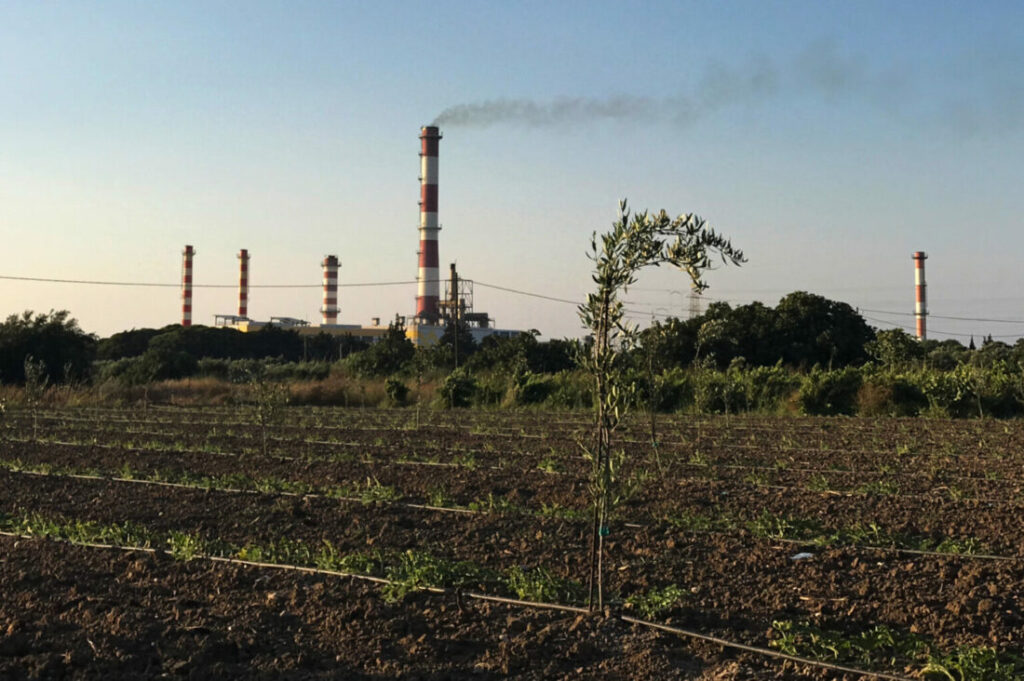
Oil spills are also a fact of life when refuelling by tanker. “We had two oil spills in Rhodes from fuel oil tankers, in 1993 and 2008,” recalls Dimitris Grigoriadis, a local resident. “Each time the authorities promised that no more polluting generators would be added, and that new technology would reduce pollution”.
Neither promise materialised. The Soroni power station increased in capacity over time from 30 MW in 1975 to over 230 MW, while a new oil-burning generator was built on Rhodes as recently as 2019, with funding from the European Investment Bank.
Wasted opportunities
“Technological progress has made connecting the islands to the grid easier and more cost-effective,” comments Dimitris Tsekeris of WWF, “but this was not the main reason the interconnectors were not built earlier. The discussion about Crete has been going on for years.”
According to Michalis Papadopoulos, professor emeritus of electrical engineering at the National Technical University of Athens, a feasibility study dating back to 1986 had already found that connecting Crete to the Greek mainland with two 300 MW cables was “technically feasible and economically advantageous”. DEI-PPC gave the go-ahead for the building of the interconnector in 1989, but, Papadopoulos says, “in May 1991, after political interventions which were the result of local objections to the building of a substation, DEI-PPC’s Board of Directors changed its mind and decided to postpone the project indefinitely”.
“Lack of public funds, poor planning, a weak institutional framework, objections by local communities — many factors were responsible for the delays,” says Nikos Mantzaris of Green Tank. “The only certainty is that these delays were detrimental to the environment, the climate, consumers’ electricity bills, and the quality of life of many islanders. The only beneficiary was the oil industry”.
Politics
There is a consensus among politicians of all stripes that connecting the islands to the grid is long overdue. However, politicians are equally united in their reluctance to accept responsibility or openly acknowledge the cause for delay.
A 2016 exchange in Parliament exemplifies the blame game that has helped maintain the toxic status quo. Debating the rising cost of electricity, New Democracy MP Olga Kefalogianni, who also happens to be a niece of Vardis Vardinogiannis, chairman of the Motor Oil Group, stated, “You know better than me that the Greek consumer pays €1 billion per year due to the lack of island interconnections. If the Crete and Cyclades interconnectors had gone ahead, the surcharge would have been abolished”.
A retort came from then Energy Minister Panos Skourletis, who said, “To be asked what is going on with the Crete interconnector by the people who were in charge of energy policy over the last several decades and did nothing does not show naivety, it shows nerve.”
Reporters United spoke to three former Environment and Energy ministers, all of whom were scathing about the delay in interconnecting the islands. None, however, was keen to point the finger at those responsible.
“Interconnecting the islands and closing the DEI-PPC generators will have a series of positive effects,”, said Kostis Hatzidakis, who served in the post between July 2019 and January 2021. “Firstly, it will stop the burning of heavy fuel oil and diesel, which will reduce pollution. Secondly, it will reduce the cost of energy to consumers who are currently paying the YKO surcharge. Thirdly, it means that renewables will have a more active role in the country’s energy mix.” In an older statement, Hatzidakis had referred to the “polluting oil generators on our islands” as a “shameful picture”. We asked him who should be ashamed, but he declined to answer.
Yiannis Maniatis, who was Environment, Energy and Climate Change Minister between June 2013 and January 2015 acknowledged that “the interconnection could have been implemented sooner and it is unfortunate that this did not happen, as we could have limited the cost and pollution sooner”. New Democracy and PASOK, the parties which Hatzidakis and Maniatis belong to, governed Greece in the critical decades between 1980 and 2015 when the opportunities for change were missed, but neither wished to comment on the political responsibilities.
George Stathakis, who was Environment Minister between November 2016 and July 2019 in the SYRIZA government, told Reporters United: “Our goal was to close the power stations on the islands, and free them from burning fossil fuels. When I went to Mykonos to switch on the interconnector, I saw the equipment that was being decommissioned and I was shocked. If you look at their environmental footprint, it is shocking.” This, however, did not stop his government from promoting major fossil fuel projects, such as oil and gas exploration and the EastMed gas pipeline.
Making connections
Two things changed relatively recently that tilted the balance in favour of change. The first is that the newly spun-out power transmission operator IPTO (or ADMIE to use the Greek acronym) is obliged by the regulator to deliver a regulated return of 8% on its asset base. This incentivises it to undertake investments in the network. Since 2017, ADMIE-IPTO has also been partly privatised, and its governance is independent of DEI-PPC. Only 51% now belongs to the Greek state, while 24% is owned by China’s State Grid and 25% by other institutional and private investors.
The second and perhaps more powerful development is that the energy industry is being forced to turn away from fossil fuels as a result of climate change regulations and incentives to invest in green energy.
This is already having a measurable impact on the domestic energy players. HELPE’s new corporate strategy published in 2021 includes bigger investments in renewables, electric transport and hydrogen. In October 2019, Motor Oil announced it was entering the renewables space with a €12 million investment in three wind farms, and in March 2021, the company followed up with investments in PV, storage batteries and electric transport.
“Oil companies are no longer interested in selling oil for the islands,” a well-informed industry source tells Investigate Europe and Reporters United. “They know there are no more profits to be had there. Now their main concern is to get a foothold in renewables and natural gas”.


